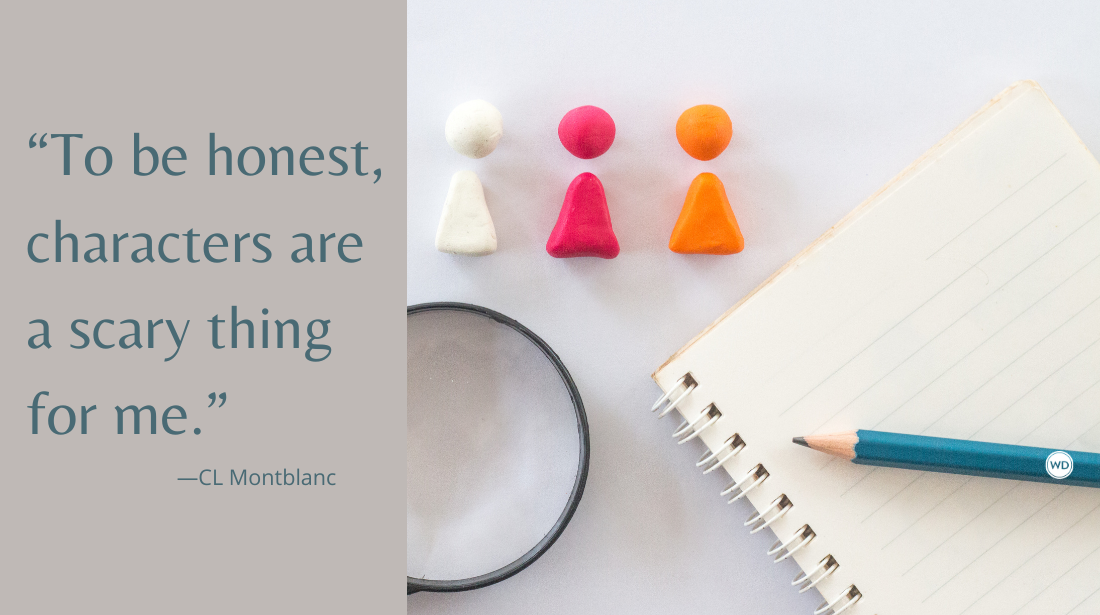4 Tips When Writing from Experience
Like many writers, Robin Palmer’s first novel was autobiographical. Also like many writers, her first novel was not published. Since that first manuscript, she’s published 10 books. Yet it wasn’t until her forthcoming novel The Corner of Bitter and Sweet—the story of a sixteen-year-old girl dealing with her mother’s alcoholism and subsequent recovery—that she decided to dip back into my own experience. Determined not to repeat the same mistakes, she made certain to keep these four tips in mind.
Like many writers, my first novel was autobiographical. Also like many writers, my first novel was not published. While at the time I was completely devastated—how could they not appreciate the genius that I had bled onto the page?!—by the time I did get published, I was grateful and relieved that the work was living on my hard drive rather than bookshelves. Since that first manuscript, I’ve published ten books. Yet it wasn’t until my forthcoming novel The Corner of Bitter and Sweet—the story of a sixteen-year-old girl dealing with her mother’s alcoholism and subsequent recovery—that I decided to dip back into my own experience. Determined not to repeat the same mistakes, I made certain to keep these four tips in mind.
***************************************************************************************************************************
Guest post by Robin Palmer, author of the YA novel The Corner of Bitter and Sweet (Penguin), about a teen who's has-been starlet mom starts dating a much younger celebrity. The relationship at the story's core is the girl and her mom, co-dependent in an Alateen way. She's published several other YA and MG novels, one of which was made into a Disney TV movie.
***************************************************************************************************************************
1. Don’t use your work as a weapon to settle scores and get back at people.
There’s no doubt that writing can be therapeutic, and that when channeled correctly, anger is a healthy emotion. Not to mention writing burns calories versus the weight that is gained when we (okay, some of us…okay, me) carbo load at someone. That being said, one of the adages learned in twelve-step programs (a big plot point in Bitter and Sweet) is that “When you point a finger at someone, there are three pointing back to you.” Your take on an experience is exactly that—your take. While exorcising your demons on the page might be cathartic, how you feel is your truth at that moment—and not necessarily how you’re going to feel a week, month or year later. Feelings change. The repercussions of vilifying someone on the page, even if it’s under the guise of fiction, can last a lot longer.
2. Know the difference between fiction and journaling.
Journaling is a wonderful tool. It’s also the pinnacle of self-obsession and navel-gazing. (I say this with great affection, as I’m a huge journaler.) One of the plusses of prose is that it allows for an internal exploration of a character’s thoughts and feelings. However, there can be the tendency when writing about/from your own experience to get bogged down in analysis paralysis at the expense of plot, pacing, setting and dialogue.
3. Be an advocate for your characters – even the so-called villains.
I write to understand and to be understood. Those are also the very reasons that I read. The opportunity to read about characters who are far from perfect and to love them anyway gives me the gift of identification and helps me to accept my own imperfections. In Bitter and Sweet, the mother is impulsive, self-obsessed and immature. She also loves her daughter more than anything. Showing the two sides of her personality—the flaws and the strengths--makes her a more compelling and complex character, one whom readers will hopefully identify and connect with, and remember long after they’ve finished reading. Check that your characters aren’t all villains or saints but human beings who are perfectly imperfect.
4. Put distance between you and the experience so that you can be objective.
The best kind of drama is that which provokes a charge. However, if you’re still charged about the incident when you sit down to write, chances are you’ll only be able to see the situation in black and white versus the grey that is a hallmark of good fiction. With time, you’ll be able to craft a story from a more objective viewpoint so that it doesn’t feel like your main character is giving a closing argument in a trial and trying to win over a jury.
************
Follow me on Twitter: @BrianKlems
Check out my humor book, Oh Boy, You're Having a Girl.
Sign up for my free weekly eNewsletter: WD Newsletter








